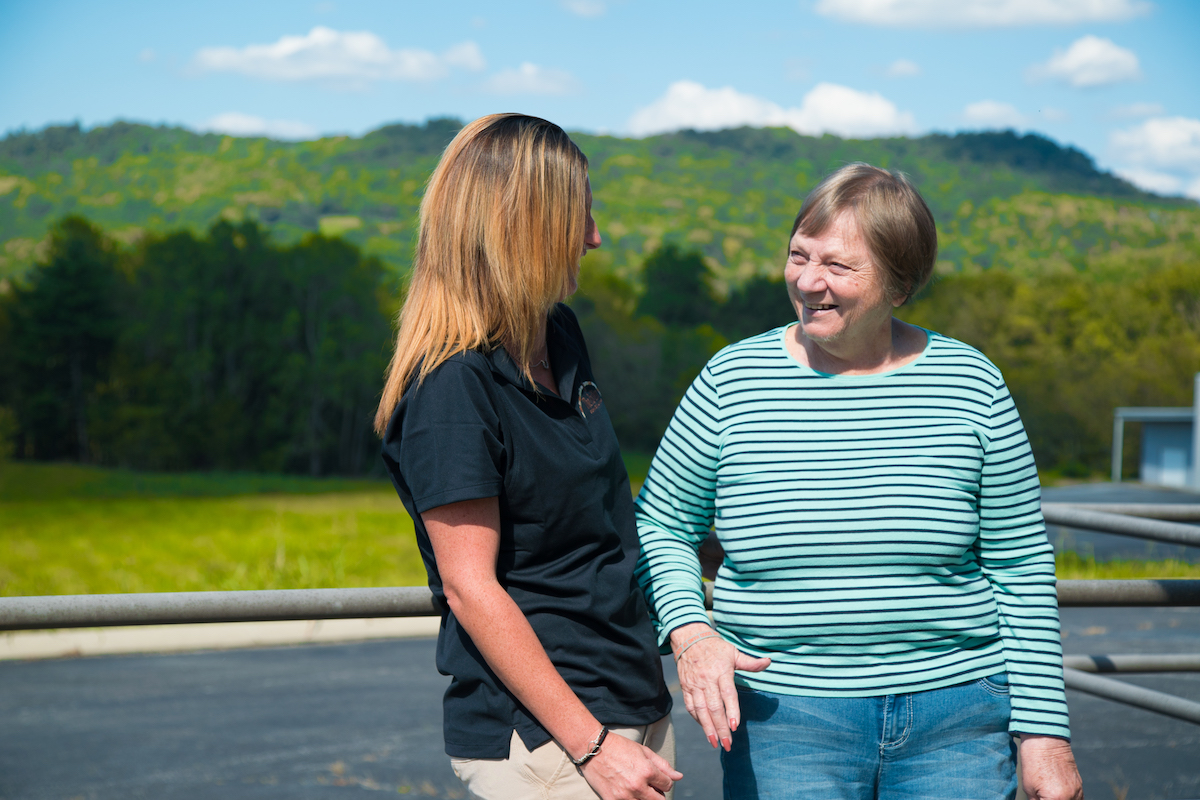ADLs and IADLs: What Are They & What is Their Impact?
Posted By Pavilion Senior Living on August 1, 2023
In our daily lives, we perform various tasks that are essential to our well-being and independent functioning. Two crucial categories of activities that significantly impact our independence are Activities of Daily Living (ADLs) and Instrumental Activities of Daily Living (IADLs).
While both categories outline how safely individuals are able to live on their own, ADLs encompass the fundamental self-care tasks necessary for daily life, whereas IADLs involve more complex activities.
At The Pavilion Senior Living, we focus on helping individuals enhance their independence and quality of life. We use ADLs and IADLs as a guide in our assisted living communities in Tennessee to help us provide the right customized services to make this happen for residents.
Our team is sharing what ADLs and IADLs entail, their significance in maintaining independence, and their impact on an individual’s quality of life.
Activities of Daily Living (ADLs)
Activities of daily living collectively describe fundamental skills required to independently care for oneself. ADLs are essential for maintaining physical and emotional well-being and primarily focus on personal care in five key areas:
- Personal Hygiene: This includes tasks like bathing, grooming, oral care, and dressing. These activities are crucial for maintaining cleanliness, preventing infections, and promoting self-esteem.
- Eating and Feeding: This category involves activities related to meal preparation, feeding oneself, and ensuring proper nutrition. The ability to independently consume food and maintain a balanced diet is essential for overall health.
- Mobility: Mobility refers to the capability of moving around independently, including tasks like walking, transferring from one surface to another, and maintaining balance. Maintaining mobility allows individuals to perform other ADLs and engage in social activities.
- Toileting: This encompasses tasks related to using the toilet, maintaining continence, and managing personal hygiene in this area. The ability to control bowel and bladder functions is crucial for maintaining dignity and preventing health issues.
- Transferring: Transferring activities involve moving from one position to another, such as getting in and out of bed, chairs, or wheelchairs. These tasks require strength, coordination, and balance, and the ability to perform them independently contributes to overall functional independence.
Instrumental Activities of Daily Living (IADLs)
The American Council on Aging states, “IADLs are necessary for independent living but are not as crucial to daily functioning as ADLs. This means they do not have to be done every single day.”
Instrumental activities of daily living are more complex and require higher cognitive functioning and organization skills than the basic activities of daily living. While they do not need to be performed every day, IADLs do significantly impact a person’s quality of life and enable them to lead a more fulfilling and purposeful lifestyle.
Tasks included in the IADLs are:
- Managing Finances: This includes tasks like budgeting, bill payment, and managing financial resources. These skills are essential for maintaining financial stability and ensuring the ability to meet basic needs.
- Shopping and Errands: Including activities such as grocery shopping, purchasing essential items, and managing transportation to complete errands. These tasks require planning, decision-making, and the ability to navigate the community effectively.
- Meal Preparation and Cooking: The ability to plan and prepare meals independently is crucial for maintaining proper nutrition and a healthy diet. This includes tasks like grocery shopping, food storage, and cooking techniques.
- Medication Management: Encompassing activities related to managing medication schedules, refilling prescriptions, and understanding medication instructions. Proper medication management ensures an individual’s health and prevents complications.
- Housekeeping and Maintenance: These activities involve maintaining a clean and organized living environment, including tasks like cleaning, laundry, and home repairs. A safe and comfortable living space contributes to overall well-being.
The Impact of ADLs and IADLs on Independence
ADLs and IADLs are critical in determining an individual’s level of independence and quality of life. The ability to perform these tasks independently enhances self-esteem, autonomy, and overall well-being.
Safety
Above all else, the ability to complete ADLs and IADLs independently ensures a person is maintaining a safe lifestyle.
Physical Wellness
ADLs directly impact an individual’s physical health by promoting personal hygiene, proper nutrition, mobility, and continence. The ability to perform these activities independently reduces the reliance on others for assistance, maintaining physical well-being.
Emotional Health
Being able to engage in ADLs and IADLs independently fosters a sense of accomplishment, self-worth, and confidence. It contributes to a positive self-image and improves mental and emotional health.
Social Engagement
Independence in the ADLs and IADLs enables individuals to engage in social activities, interact with others, and maintain relationships. This leads to increased social engagement, reduced isolation, and improved overall quality of life.
Activities of daily living and instrumental activities of daily living are crucial for helping individuals maintain their independence. Additionally, understanding the significance of ADLs and IADLs helps healthcare professionals, caregivers, and individuals recognize where they could benefit from additional support to help them enhance their quality of life.
If you would like to learn more about how we use ADLs and IADLs to help guide us throughout our assisted living communities in Tennessee, we invite you to explore our website or contact a member of The Pavilion Senior Living team.
Tags: Assisted Living, Health and Wellness, Senior Living

